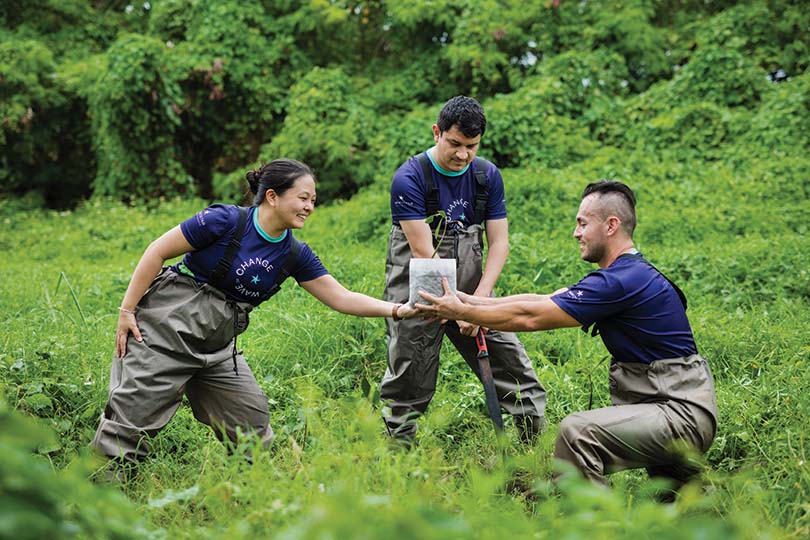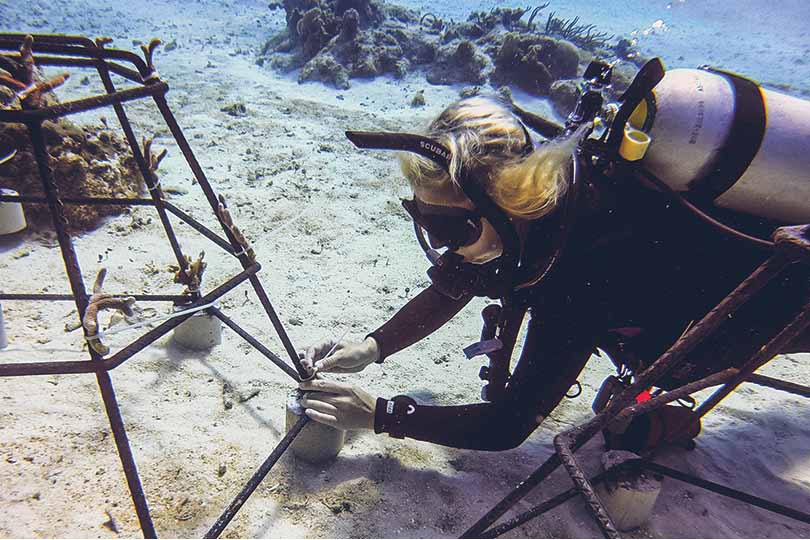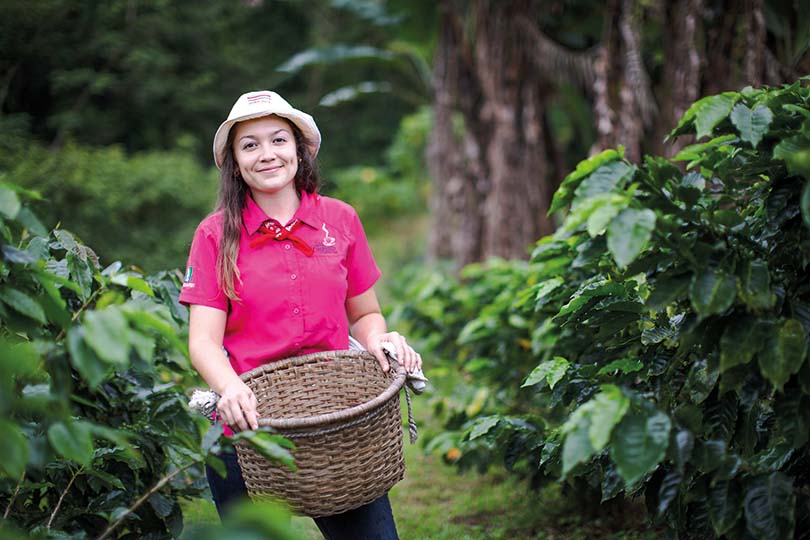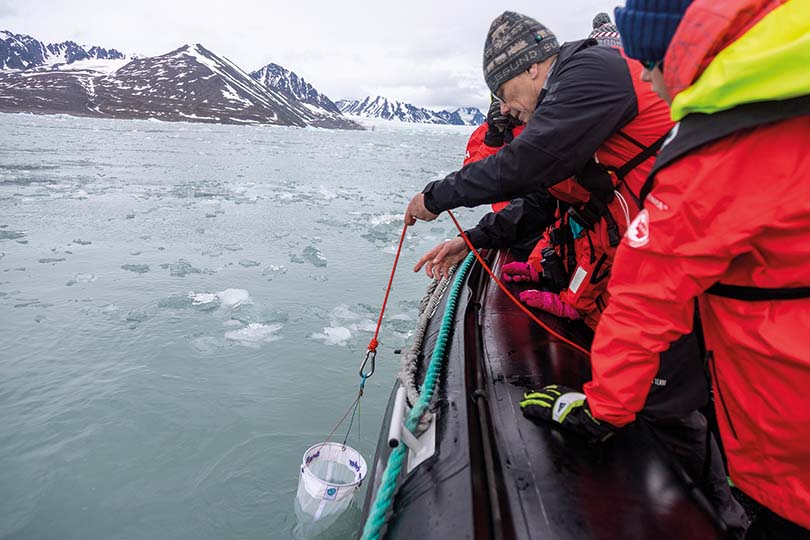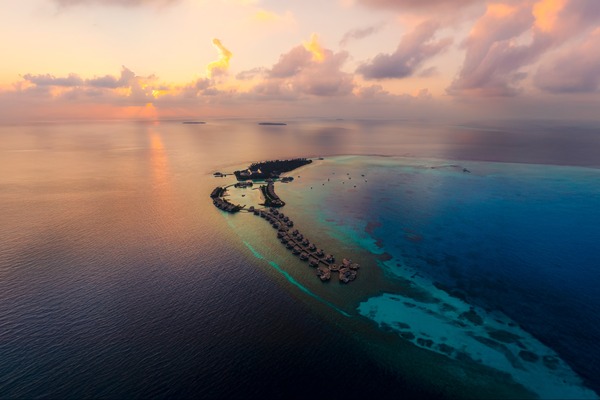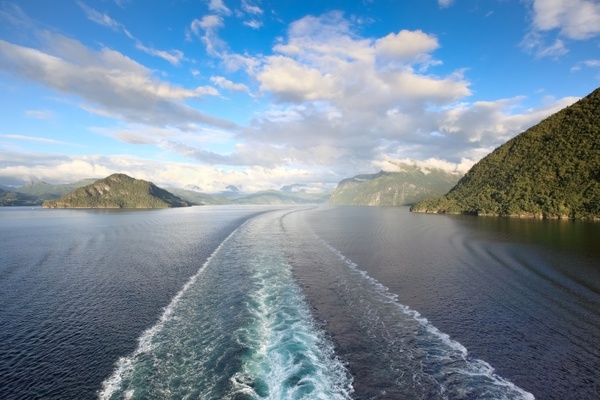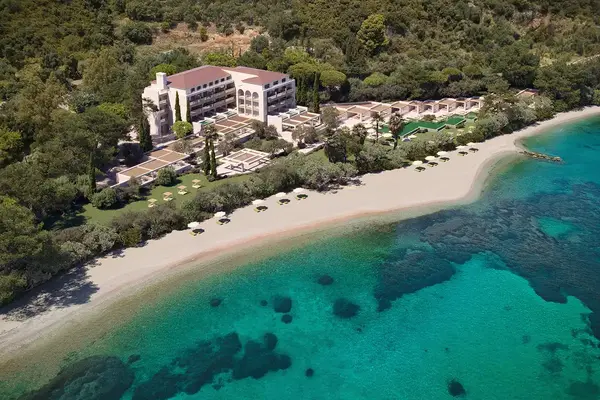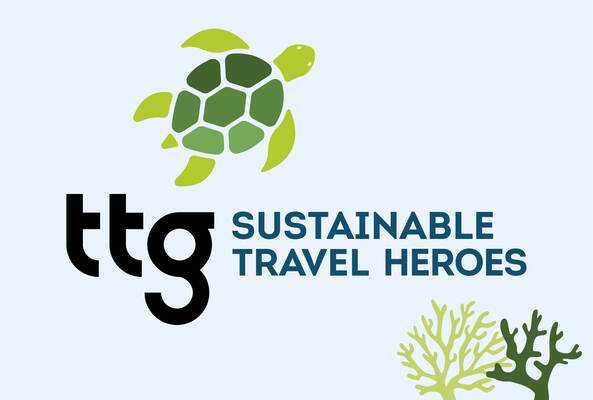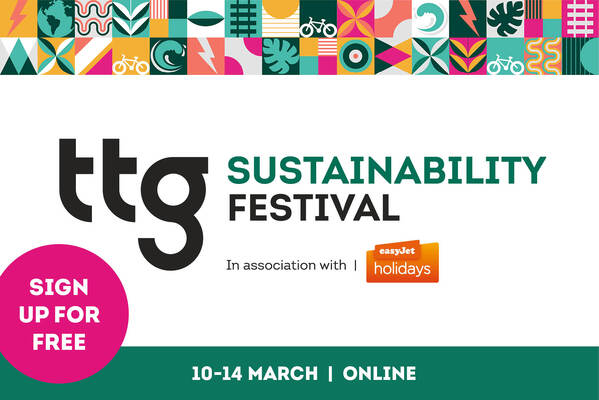How the industry – and you – can help conserve the planet
Travel can have a positive impact on nature and help protect biodiversity when done correctly. Discover how the industry is helping conserve the planet, and how you can too.

Biodiversity is the foundation of the natural world, accounting for all life found in a habitat. From the largest mammal to the tiniest bacteria, a complex network of species and organisms form eco-systems and help maintain life as we know it.
By taking clients to destinations across the globe the travel industry has an enormous impact on biodiversity, and is in a unique position to drive positive change.
Carol Rose, senior sustainability manager at Abta, explains: “Biodiversity is essential for the health and wellbeing of the planet and for all its inhabitants, including humankind. Travel and tourism has an important role to play to advance nature conservation as well as protect and preserve indigenous peoples of the earth, their communities’ practices, and their way of life.”
This has never been more urgent, as this year the World Economic Forum warned losing biodiversity and the resulting collapse of eco-systems is among the three most severe risks facing the world over the next decade, alongside climate action failure and extreme weather events.
CHAMPIONING NATURE
Nature is now a key stakeholder for many travel brands. In September, Iberostar Hotels & Resorts was named Sustainable Travel Company of the Year at the Travel Industry Awards by TTG, and the brand has a wide range of sustainability initiatives. These include improving the health of the coastal areas in its destinations, and Iberostar aims for all eco-systems surrounding its properties to be “in improving health” by 2030.
Four Iberostar coral nurseries in the Caribbean are helping restore coral reefs, and business development director Aishling McLoughlin explains: “Coral reefs are essential eco-systems that host a world of marine life, protect our coasts and allow us to continue to enjoy white sandy beaches and crystal clear waters. Through our work, we want to restore these eco-systems and the benefits they provide for the ocean and for all of us.”
Guests can see the importance of the work in Iberostar’s Coral Lab in the Dominican Republic, which opened in 2019 and investigates how to help coral reefs face climate change.
They can also explore a mangrove sanctuary at the Iberostar Selection Paraiso Maya in Mexico and marvel at the 10,000 mangroves Iberostar planted in the Dominican Republic. The trees are pivotal to the brand’s target to become carbon neutral by 2030, as they absorb carbon and provide vital habitats.
Biodiversity can also be woven into excursions and tours to educate visitors. In Costa Rica, G Touring brands Just You and Travelsphere take clients to the Mi Cafecito tourism and agriculture co-op, where guides explain the vital role of biodiversity in creating an environment ideal for growing coffee.
INSPIRING CHANGE
Involving travellers in biodiversity projects and research can have hugely positive results, as Hurtigruten Expeditions has found. Clients can help Citizen Science projects on their cruise by collecting data for scientists.
Many projects focus on biodiversity, including the Secchi Disk study, where guests help to measure seawater transparency before submitting findings to aid research into phytoplankton.
Verena Meraldi, Hurtigruten’s chief scientist, says: “Interacting with researchers and contributing to Citizen Science projects while on holiday can be a catalyst for behavioural change. Many guests tell us this unexpected approach to visiting a bucket-list destination had a real impact on them.”
Meraldi says clients’ data collection has also helped inform decision making. To avoid whale strikes, the International Association of Antarctica Tour Operators adopted a mandatory speed restriction of 10 knots in areas of the Antarctic Peninsula, after research by the HappyWhale Citizen Science project showed a growth in whale populations.
NATURE POSITIVE TOURISM
Travel companies are proving that with the right approach, tourism can help halt the damage already done to nature.
Intrepid won the Sustainability Initiative of the Year award at The Travel Industry Awards by TTG, with judges praising its commitment to science-based sustainability targets. It supports a range of initiatives, including restoration carbon offsetting projects and the Blue Carbon Lab, which conducts research into blue carbon ecosystems, such as tidal marshes.
It’s also one of 158 companies from a range of sectors to join Get Nature Positive, a movement to help businesses protect nature. Susanne Etti, Intrepid’s global environmental impact manager, explains: “Nature Positive tourism isn’t just the future of travel, it’s safeguarding the future of our planet. As a responsible tourism operator and as individual travellers, it’s critical we do all we can to understand, protect, and preserve the world’s natural habitats, wildlife, and environment for future generations while we explore the world.”
Etti stresses well-managed tourism can help protect biodiversity, as it puts an economic value on protecting wildlife and the environment.
She cites the example of gorillas in Rwanda, explaining: “The local communities have an economic self-interest in keeping the gorillas safe and secure from poachers because of the income national park fees provides. But the gorillas themselves are just the visible tip of the iceberg. For gorillas to survive you need a large national park, complete with healthy biodiversity. So gorilla tourism literally preserves biodiversity.”
For more guidance on how to sell sustainable travel, visit ttgmedia.com/sustainabletravelheroes
TRAVELLING WITH CARE
The Travel Foundation shares advice on how agents and their clients can support and protect biodiversity:
- Provide information on the national parks and special flora and fauna in the destinations you’re selling
- If offering nature-based holidays or excursions, use specialist providers and vet them carefully
- Help your customers to prepare: suggest using reef-safe sunscreen and reusable water bottles
- Promote giving back by donating to a relevant conservation charity
- Encourage “leave no trace” principles to help clients minimise any impact on nature (nps.gov/articles/leave-no-trace-seven-principles.htm)
- Explain how park entry fees and sustainable tourism taxes help to conserve special places
- Flag problematic souvenirs, such as those made from coral
- Highlight the Marine Conservation Society’s Good Fish Guide, which explains how seafood choices affect the environment (mcsuk.org/goodfishguide)
